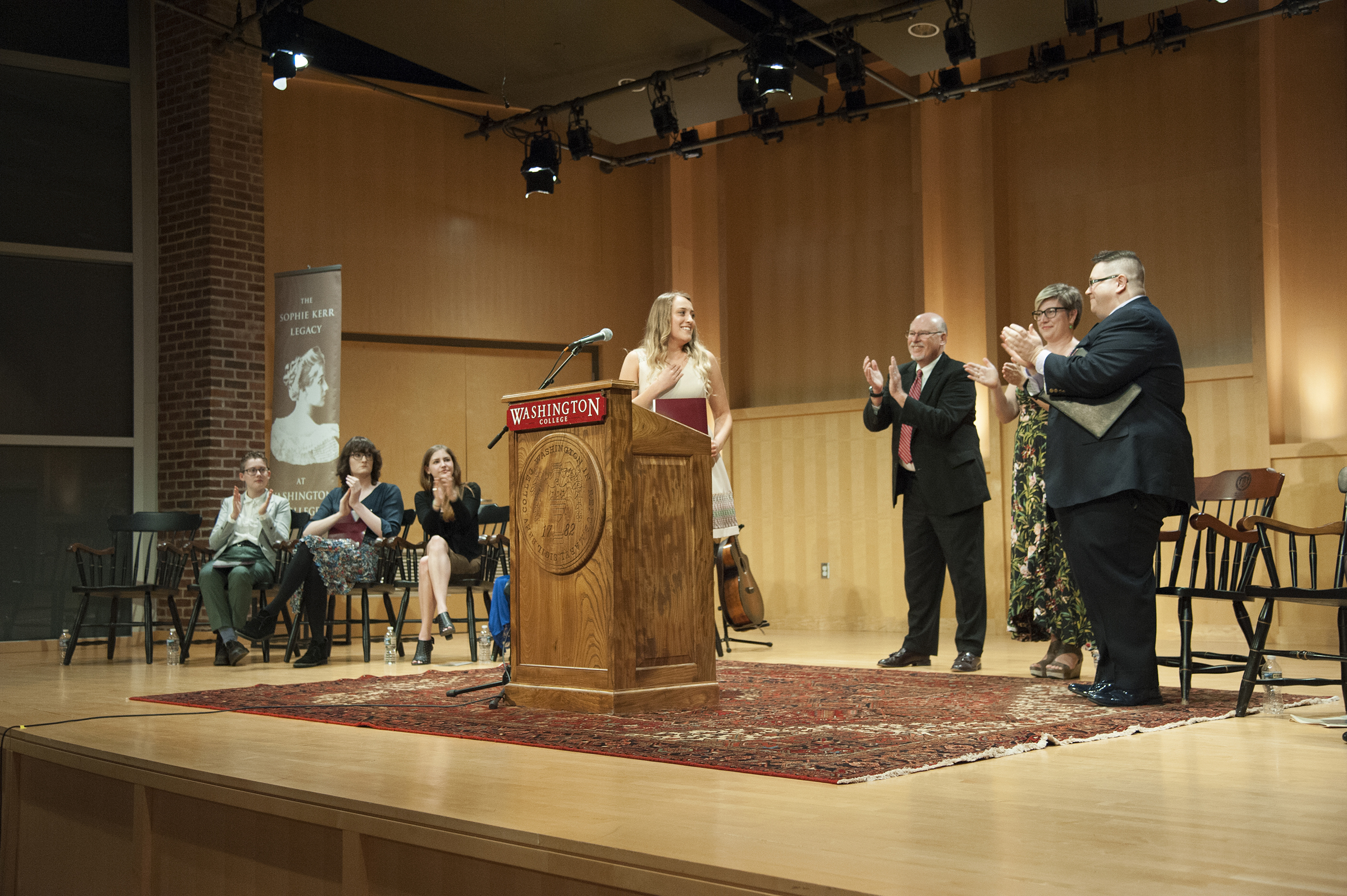Fall 2019
Here are the English courses being offered in Fall 2019 and the different ways in
which they can be used to fulfill the English major, the Creative Writing minor, and
the Journalism, Editing & Publishing minor. For a full description of each course,
including the Special Topics courses, click on the course numbers below.
Note: Students may count up to two courses (8 credits) toward multiple programs in the
English department (i.e., toward the English major, Creative Writing minor, and/or
Journalism, Editing & Publishing minor).
English major:
Intro-level
| ENG 101 |
Literature and Composition |
| ENG 208 11 |
Intro to Brit Lit & Culture II |
| ENG/AMS 209 10 |
Intro to American Lit & Culture I |
| ENG/AMS/BLS 213 |
Intro to African-American Lit I |
| ENG 15 |
Bible as Lit |
| ENG 220 10 |
Intro Fiction |
| ENG 221 |
Intro to Nonfiction |
| ENG 224 |
Intro to Journalism |
Pre-1800 courses
| ENG/ THE 205 |
Shakespeare I |
| ENG 303 10 |
Women Writers to 1800 |
| ENG 320 |
The Eighteenth Century |
Post-1800 courses
| ENG 321 10 |
Romanticism |
| ENG 343 |
Irish Short Story |
| ENG/AMS 376 |
Culture of the Old/Cultures of the Young |
| ENG 394 10 SpTp |
Modernist Women Writers |
| ENG 494 10 SpTp |
Book History and American Print Culture |
Note: ENG 494 10: Junior Seminar: ***Required for Juniors (students graduating 2021)*** (counts as an elective in English)
Minors:
JEP Courses, fall 2019:
| ENG 101 |
Literature and Composition |
| ENG 103 |
Intro to Creative Writing |
| ENG 221 |
Introduction to Nonfiction |
| ENG 224 |
Intro to Journalism |
Advanced
| ENG 393/493 |
Journalism Practicum |
| ENG 394 13 SpTp |
Journalism |
| ENG 494 10 SpTp |
Book History and American Print Culture |
| ENG 494 11 SpTp |
Strategies of Editing & Publishing |
Internship
- ENG 390/490: Journalism or Editing & Publishing Internship
Creative Writing courses, fall 2019:
| ENG 103 |
Intro to Creative Writing |
| ENG 220 |
Intro to Fiction |
| ENG 221 |
Intro to Nonfiction |
Workshops
| ENG 452 |
Fiction Workshop |
| ENG 453 |
Poetry Workshop |
Courses focusing on Editing or Publishing Skill or Internship, or an internship
| ENG 494 11 SpTp |
Strategies of Editing & Publishing |
| ENG 390/490 |
Internship |

